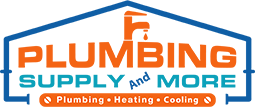Water Feeders
Water Feeders are essential components in hydronic heating systems, particularly in boilers. Their primary function is to maintain the water level within the boiler at an optimal operating level, ensuring the system runs safely and efficiently. Water feeders automatically add fresh water to the boiler when the water level drops due to evaporation or other factors. This consistent replenishment helps prevent damage to the boiler, ensures a steady supply of hot water or steam, and maintains the overall efficiency of the heating system.
The Function of Water Feeders in a Boiler System:
- Maintaining Water Levels: The main purpose of a water feeder is to monitor and maintain the correct water level in a boiler. As water is heated and turned into steam, the water level in the boiler can decrease. The water feeder responds by automatically adding the appropriate amount of water to keep the system operating at its best.
- Preventing Boiler Damage: Low water levels in a boiler can lead to severe damage, including overheating and potential failure of the system. Water feeders help prevent these issues by ensuring that the boiler always has enough water to function correctly, thereby extending the lifespan of the boiler and reducing the risk of costly repairs.
- Ensuring Safe Operation: By maintaining the correct water level, water feeders play a critical role in the safe operation of the boiler. They help prevent dangerous conditions such as dry firing, where the boiler operates without enough water, which can lead to overheating and safety hazards.
Types of Water Feeders and How They Work:
- Float-Type Water Feeders: Float-type water feeders use a buoyant float mechanism to monitor the water level in the boiler. When the water level drops, the float descends, triggering the feeder to add water until the correct level is restored. These feeders are reliable and commonly used in many boiler systems.
- Probe-Type Water Feeders: Probe-type water feeders use electronic sensors or probes to detect the water level in the boiler. When the water level falls below the probe, the feeder activates and adds water until the level is back within the desired range. Probe-type feeders offer precise control and are well-suited for more advanced systems.
- Electronic Water Feeders: Electronic water feeders are the most advanced type, using sophisticated control systems to monitor and maintain water levels. These feeders can be programmed for specific water level settings and often include additional features like alarms or automated diagnostics. They are ideal for complex or large-scale boiler systems where precise water management is crucial.
- Selecting the Right Water Feeder: The choice of water feeder depends on the specific requirements of your boiler system. Factors like the type of boiler, system size, and desired level of control should be considered when selecting the appropriate water feeder for your needs.
Troubleshooting and Maintaining Water Feeders:
- Identifying Issues: Common issues with water feeders include clogs, leaks, or faulty sensors. If the water feeder is not maintaining the correct water level, check for these problems as part of your troubleshooting process. Early identification of issues can prevent more serious problems and ensure the continued efficiency of your boiler system.
- Regular Maintenance: Regular maintenance of water feeders is essential to keep them functioning properly. This includes cleaning components, inspecting for wear or damage, and ensuring that the sensors or float mechanisms are working correctly. Routine maintenance helps extend the lifespan of the feeder and maintains the safety and efficiency of the boiler system.
- Safety Precautions: Always follow safety protocols when working with water feeders, especially when dealing with electrical components or hot water systems. Turn off the power to the boiler and allow it to cool before performing any maintenance or troubleshooting. For complex issues or repairs, it’s advisable to consult a boiler professional to ensure that the work is done safely and correctly.
- Professional Assistance: For thorough maintenance or when facing persistent issues, professional assistance from a qualified boiler technician is recommended. Professionals can perform detailed inspections, diagnose complex problems, and ensure that your water feeder and boiler system are operating at peak efficiency.
Frequently Asked Questions About Water Feeders
- What is a water feeder, and what is its function in a boiler system?
- A water feeder is a device commonly used in hydronic heating systems, specifically with boilers. Its primary function is to maintain the water level in the boiler at the optimal operating level. When the water level in the boiler drops due to evaporation or other factors, the water feeder adds fresh water to the system to ensure a safe and efficient operation. It helps prevent damage to the boiler and ensures a consistent supply of hot water or steam.
- What are the different types of water feeders, and how do they work?
- Water feeders include float-type, probe-type, and electronic models. Float-types use a buoyant mechanism to detect water levels, probe-types use sensors, and electronic feeders use advanced control systems. Each type ensures consistent water levels, though they work in slightly different ways.
- How can I troubleshoot and maintain a water feeder in my boiler system?
- Check for clogs, leaks, or faulty sensors if your water feeder isn’t working correctly. Regular cleaning and inspection of components are key. Always follow safety protocols and consult a boiler professional for thorough maintenance to keep your system in top shape.
Explore our selection of Water Feeders to find the ideal solution for maintaining the water levels in your boiler system. With the right water feeder and proper maintenance, you can ensure safe, efficient, and reliable operation of your heating system.



